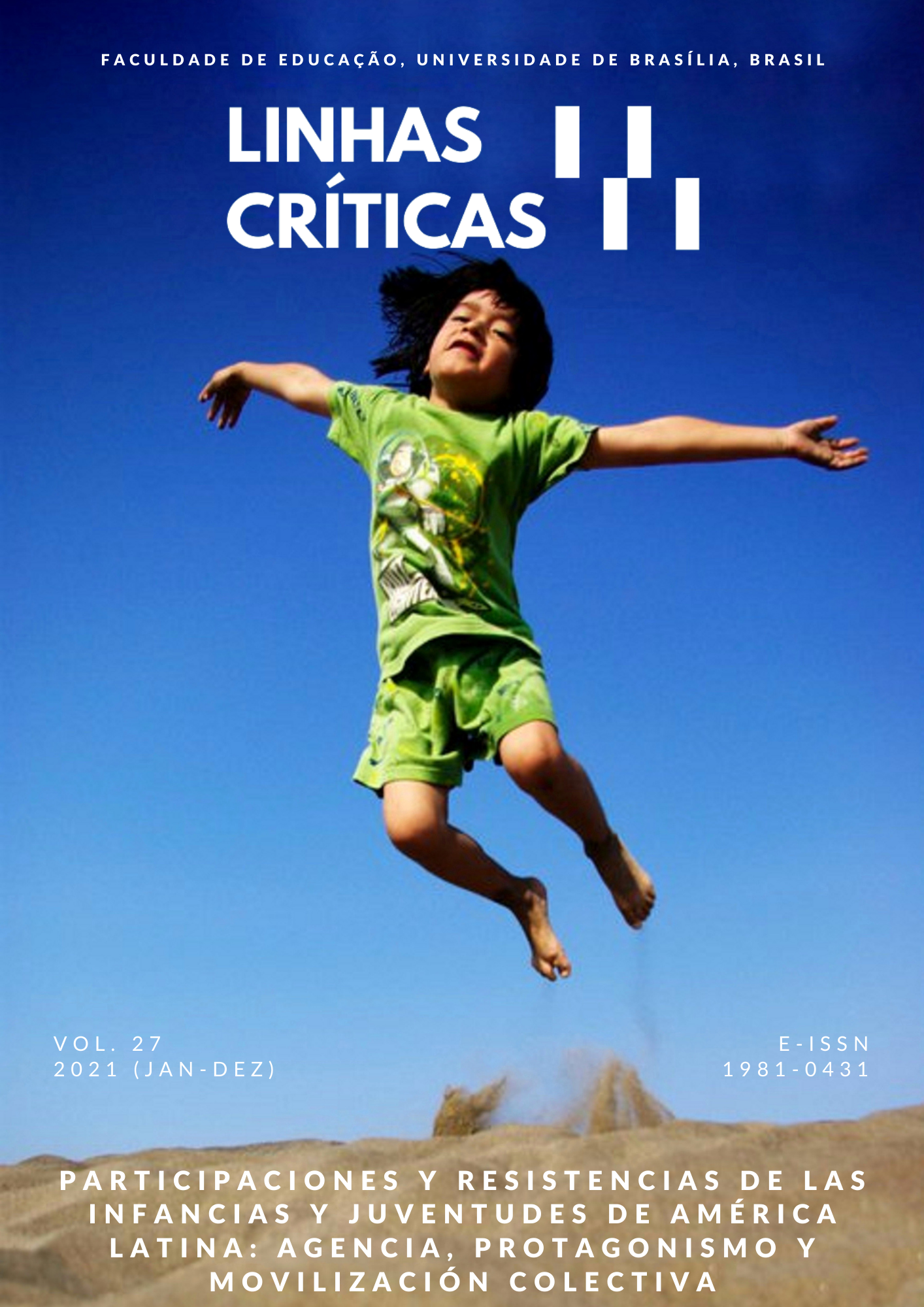The school curriculum as a trainer of the entrepreneurial subject for capital
DOI:
https://doi.org/10.26512/lc.v27.2021.36828Keywords:
Educational politics, Curriculum, Common National Curriculum Base, Life ProjectAbstract
Life Project is mentioned in the National Common Curricular Base as an axis of articulation of competences and skills with a view to the integral formation of students. Clarifying the meanings expressed in two initiatives that attempt to implement it in schools and discuss its implications stand out as the objectives of this study. In a content analysis, entrepreneurship is identified as the element that constitutes this thematic field, relating it to the individual responsibility of students regarding their future, the appropriation of socio-emotional competences and skills relevant to the market and the development of knowledge useful to neoliberal dynamics that govern sociability.
Downloads
References
Bardin, L. (2016). Análise de conteúdo (Tradução de Luís Antero Reto e Augusto Pinheiro). Edições 70.
Brasil. (1988). Constituição da República Federativa do Brasil. Congresso Nacional do Brasil. Assembleia Nacional Constituinte. http://www.planalto.gov.br/ccivil_03/constituicao/constituicao.htm
Brasil. (2018). Base Nacional Comum Curricular. MEC. http://basenacionalcomum.mec.gov.br/images/BNCC_EI_EF_110518_versaofinal_site.pdf
Dardot, P., & Laval, C. (2016). A nova razão do mundo: ensaio sobre a sociedade neoliberal (Tradução de Mariana Echalar). Boitempo.
Evangelista, O. (2012). Apontamentos para o trabalho com documentos de política educacional. Em R. M. L. Araújo, & D. S. Rodrigues. A pesquisa em trabalho, educação e políticas educacionais (pp. 52-71). Alínea.
G1. (2020, julho 15). Escolas da rede pública atendem mais de 80% dos alunos do ensino fundamental e médio, aponta IBGE. G1. https://g1.globo.com/educacao/noticia/2020/07/15/escolas-da-rede-publica-atendem-mais-de-80percent-dos-alunos-do-ensino-fundamental-e-medio-aponta-ibge.ghtml
Garcia, F. (2015). Empreender é acreditar sempre, mesmo em tempos de crise. UOL. https://economia.uol.com.br/ultimas-noticias/colunistas/filomena-garcia/2015/09/15/empreender-e-acreditar-sempre-mesmo-em-tempos-de-crise.htm
Harvey, D. (2005). A produção capitalista do espaço. Annablume.
Laval, C. (2019). A Escola não é uma empresa: o neoliberalismo em ataque ao ensino público. Boitempo.
Lemos, G., & Macedo, E. (2019). A incalibrável competência socioemocional. Linhas críticas, 25, 57-73. https://periodicos.unb.br/index.php/linhascriticas/article/view/24582/22265
Montaño, C. (2010). Terceiro setor e questão social: crítica ao padrão emergente de intervenção social. Cortez.
Pacheco, J. A. (2003). Políticas curriculares: referenciais para análise. Artmed.
Peroni, V. (Org.). (2015). Diálogos sobre as redefinições das fronteiras entre o público e o privado: implicações para a democratização da educação. Oikos.
Rio Grande do Sul. (2020). Projeto de vida. Secretaria de educação do estado do Rio Grande do Sul.
Serviço Brasileiro de Apoio às Micro e Pequenas Empresas (SEBRAE). (2015). Guia Essencial para Novos Empreendedores. SEBRAE. https://www.sebrae.com.br/sites/PortalSebrae/ufs/mg/sebraeaz/guia-essencial-para-empreendedores,8f9d999b516ff410VgnVCM1000004c00210aRCRD
Serviço Brasileiro de Apoio às Micro e Pequenas Empresas (SEBRAE). (2020). Empreendedorismo no Currículo Escolar do Ensino Médio. SEBRAE. https://cer.sebrae.com.br/wp-content/uploads/2020/07/Empreendedorismo-no-curri%CC%81culo-do-Ensino-Me%CC%81dio.pdf
Additional Files
Published
How to Cite
Issue
Section
License
Copyright (c) 2021 Renata Cecilia Estormovski

This work is licensed under a Creative Commons Attribution 4.0 International License.
Authors who publish in this journal agree to the following terms:
-Authors maintains the copyright and grants the journal the right of first publication, the work being simultaneously licensed under the Creative Commons Attribution License which allows the sharing of the work with recognition of the authorship of the work and initial publication in this journal.
- Authors are authorized to enter into additional contracts separately, for non-exclusive distribution of the version of the work published in this journal (eg publish in institutional repository or as a book chapter), with acknowledgment of authorship and initial publication in this journal.
-Authorers are allowed and encouraged to publish and distribute their work online (eg in institutional repositories or on their personal page) at any point before or during the editorial process, as this can generate productive changes as well as increase the impact and the citation of published work (See The Effect of Free Access).



